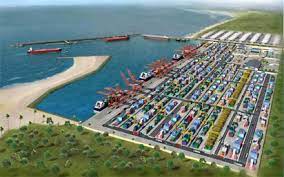Strong indications have emerged showing that Nigerian commercial airlines are now driving backward integration in management and operations of their companies especially in the employment of pilots and aircraft engineers.
Besides, many Nigerian new pilots are trained with latest aircraft models that require certain skills set and technologies. This factor according to experts give local pilots added advantage to overrun their foreign competitors who are usually known for high salary charges and costly maintenance expenses based on the fact that they work and live in Nigeria with their families.
It was gathered that as at 2017, Nigeria’s number of certified pilots rose from 2,226 in 2016 to 2,356 with about seven passenger airlines, about six cargo airlines, five helicopter companies and other charter airlines doing business in the country.
Whereas Air Peace and Med-View Airlines, now employ about 98 per cent indigenous pilots, Dana Air pilots are about 85 per cent Nigerians.
Only recently, Air Peace made case for the development an Air Maintenance Hanger facility in Enugu as it asked the Nigerian Air Force in partnership with Enugu State Government for lands near its facility to build a region air maintenance hub.
This therefore defines the readiness of indigenous airlines in driving additional investments in training indigenous aircraft engineers and allied services in Nigeria.
This feat was further confirmed by the Corporate Communications Manager of Air Peace, Mr. Chris Iwarah who averred that “Apart from some newer model aircraft recently procured by the airline for international services, which require uncommon skills, almost all the carrier’s pilots are Nigerians”.
According to the Chief Operating Officer of Dana Air, Obi Mbanuzuo, since the company sealed partnership deal with Imo State Government, it is deepening investments to grow in size and service delivery.
He said “We have ‘Nigerianised’ our crew. Before now, we had 60 expatriate engineers; now, it is down to eight; we have trained our local people.
“Our flight deck was also predominantly expatriates; but now, we have mainly Nigerians. We didn’t chase anyone away, it was natural alteration; we trained and replaced. Our first set of trained Nigerian first flight officers has recently been promoted to captains.”
Business Hilights recalls that Nigeria currently boosts of about five aviation training schools in the country including the Nigerian College of Aviation Technology, Zaria; International Helicopter Flying School, Enugu; Landover Aviation Training School and Aeroconsult Training School, both in Ikeja, Lagos; and the International Aviation College, Ilorin.
Besides, the NCAT and IAC currently have the capacity of training about 20 to 30 pilots each year, while the other schools train people in certain levels of airline management and also take cabin crew courses.
Analysts’ argue that Nigeria has all it takes to seat as both traffic and air engineering hubs in the West African sub region, but poor policy initiatives on the side of government are not helping matters after all.









